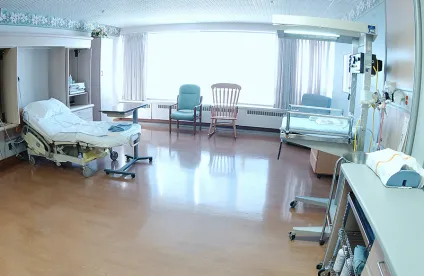The North Carolina Department of Health and Human Services Division of Health Service Regulation (“DHSR”) has published the draft 2023 State Medical Facilities Plan (“SMFP”), which was developed by the State Health Coordinating Council (“SHCC”). The SMFP sets forth need determinations for many health care services, such as acute care beds, operating rooms and MRI scanners. The SMFP is a critical document because, unless there is a published need determination for certain services, such as acute care beds, a certificate of need (“CON”) application cannot be filed to add the service.
The publication of the draft SMFP precedes a series of public hearings and summer petitions, in which interested parties can petition the SHCC to either add, reduce or eliminate proposed need determinations in specific areas of North Carolina. All petitions are due by 5 pm on July 27, 2022. All comments on petitions are due by 5 pm on August 10, 2022. Public hearings are being held via WebEx from 1:30 pm- 2:30 pm eastern on the following dates:
-
July 12
-
July 14
-
July 18
-
July 20
-
July 25
-
July 27
Following the receipt of petitions and comments, DHSR staff will prepare recommendations, which are usually issued around Labor Day. In mid-September, each of the three SHCC committees (Acute Care Services, Long-Term and Behavioral Health and Technology and Equipment) will meet to vote on petitions. The full SHCC will meet on September 28, 2022 to vote on the draft 2023 SMFP, including any petitions. After that, the draft SMFP will go to Governor Cooper for review and signature. The Governor has final authority over the SMFP, and he may accept the draft SMFP as is or amend it. The Governor is expected to sign the SMFP before December 31, 2022, and the 2023 SMFP will take effect on January 1, 2023.
Here are some of the highlights from the draft 2023 SMFP:
Acute Care Beds
2023 is shaping up as a banner year for acute care bed need determinations, including in several predominantly rural counties. The draft need determinations are:
-
Anson: 7
-
Buncombe/Graham/Madison/Yancey: 31
-
Cabarrus: 65
-
Duplin: 6
-
Gaston: 48
-
Hoke: 54
-
Scotland: 28
-
Union: 21
-
Wake: 44
Operating Rooms:
In contrast to acute care beds, the draft 2023 plan does not contain any need determinations for additional ORs in any part of the State.
Burn ICU Beds and Bone Marrow Transplantation Services:
As has been the case for many years, there is no need determination for additional burn ICU beds or bone marrow transplant programs anywhere in North Carolina.
Inpatient Rehabilitation:
There are no need determinations for additional inpatient rehabilitation beds.
Dialysis:
Under the county need methodology, there is no need for any additional dialysis stations anywhere in North Carolina. Individual facilities may, however, show a need for additional stations via the facility need methodology.
Skilled Nursing Beds:
There is no need for additional skilled nursing beds anywhere in the State.
Assisted Living Beds:
There are needs for additional assisted living beds in three predominantly rural counties:
-
Anson: 30
-
Perquimans: 40
-
Swain: 20
Medicare-Certified Home Health Agencies:
Similar to acute care beds, there are several need determinations for additional Medicare-certified home health agencies. Each of the following counties shows a need for one additional Medicare-certified home health agency:
-
Brunswick
-
Catawba
-
Edgecombe
-
Forsyth
-
Granville
-
Guilford
-
Montgomery
-
Nash
-
New Hanover
-
Onslow
-
Pitt
-
Robeson
Hospice Home Care Office and Hospice Inpatient Beds:
There is no need in North Carolina for additional hospice home care offices. Cumberland County has a need for 8 additional hospice inpatient beds.
Fixed Cardiac Catheterization Equipment:
Each of the following counties is shown to have a need for one additional unit of fixed cardiac catheterization equipment:
-
Johnston
-
New Hanover
-
Orange
-
Wayne
Other Equipment:
There are no need determinations anywhere in North Carolina for shared fixed cardiac catheterization equipment, linear accelerators, or lithotripters.
MRI:
As is often the case, there are need determinations for MRI scanners in several areas of the State. In 2023, each of the following counties is projected to have a need for one additional fixed MRI scanner:
-
Brunswick
-
Cleveland
-
Duplin
-
Durham/Caswell
-
New Hanover
-
Pitt/Greene/Hyde/Tyrrell
-
Randolph
-
Stanly
-
Wake
PET Scanners:
The need determination for fixed PET scanners is established on a Health Service Area ("HSA”)-wide basis. Both HSA I (western North Carolina) and HSA II (Piedmont North Carolina) have needs for one additional fixed PET scanner.
A mobile PET scanner’s service area is statewide. There is no need determination for additional mobile PET scanners in 2023.
Conclusion:
2023 is shaping up to be a busy year for need determinations, which will lead to the filing of CON applications by providers who would like to provide the services determined to be needed. DHSR will determine the CON application filing schedule later in the fall of 2022.







 />i
/>i

